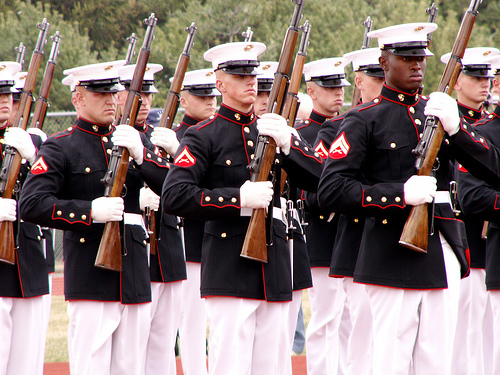Keep Ground Forces a Defense Priority

One of the things that we've learned in the past decade is that failed and failing states are probably the single greatest threat to America. They too often become breeding grounds for terrorists and radical extremists.
The corollary of this, of course, is that there is no substitute for American boots on the ground. The stabilizing presence of an American soldier or Marine has no parallel and cannot be replaced by any ship, missile or airplane.
For these reasons, our most urgent military challenge is to maintain a robust ground force that can be rapidly deployed, even to distant and austere regions, for long and indefinite durations.
We may never have to do another Iraq or Afghanistan -- but then again, we might. And, if we are unprepared for a prolonged ground engagement, then the likelihood of its occurring will escalate.
Yet, policymakers across the political divide -- both Democrats and Republicans, liberals and conservatives -- are preparing to gut the size of America's ground force.
"We know that the military of the 21st century will be smaller," says Defense Secretary Leon Panetta.
The Pentagon chief implies "that the force structure cuts would fall most heavily on the Army," reports Lexington Institute analyst Dan Goure.
He specifically mentioned the size of the ground forces in addressing the subject of future force structure. He suggested an expanded role for the National Guard and Reserve to respond to a crisis -- which I would interpret as the second war.
The only way to meet the range of missions defined by the secretary, to be globally deployed, agile, responsive and extremely potent, is to focus the 21st century military on air and sea-based capabilities. Modern air and sea-based forces provide the presence, flexibility and sheer combat power the U.S. will most require in the 21st century.
To the list Panetta provided I would add missile defenses, long-range strike and anti-submarine warfare which are also areas of U.S. technological and operational advantage.
Now, it is important that the United States have an air force and a navy that are second to none. Power projection capabilities are, indeed, crucial, as is missile defense.
But with all due respect to Goure and the Washington cognoscenti, missiles, ships and aircraft don't win wars; soldiers and Marines do. And the truth is that our ground forces are already undermanned and underfunded.
Which is why we have had great difficulty sustaining our deployments to Iraq and Afghanistan. Too many soldiers and Marines, consequently, have had to do multiple deployments for as long as 15 months at a stretch. Further reducing the size of our ground forces is a surefire recipe for tying the hands of future commanders-in-chief and severely limiting their military options.
Effete policymakers love to wage war from a distance with technology and machines. But if our long twilight struggle with Islamic terrorism has taught us anything, it is that technology and machines are, in and of themselves, grossly inadequate for the challenges that we now face. War is a fundamentally human endeavor; and that remains as true today as it was 100 or 1,000 years ago.
By all means, let us better utilize and employ the National Guard and Reserve. They are a crucial part of the American military. But don't shortchange our active-duty ground forces. They're more important today than they were during the Cold War; and their deployments are a long ways from being finished.
John Guardiano blogs at strong>www.ResCon1.com<, and you can follow him on Twitter: strong>@JohnRGuardiano<.

